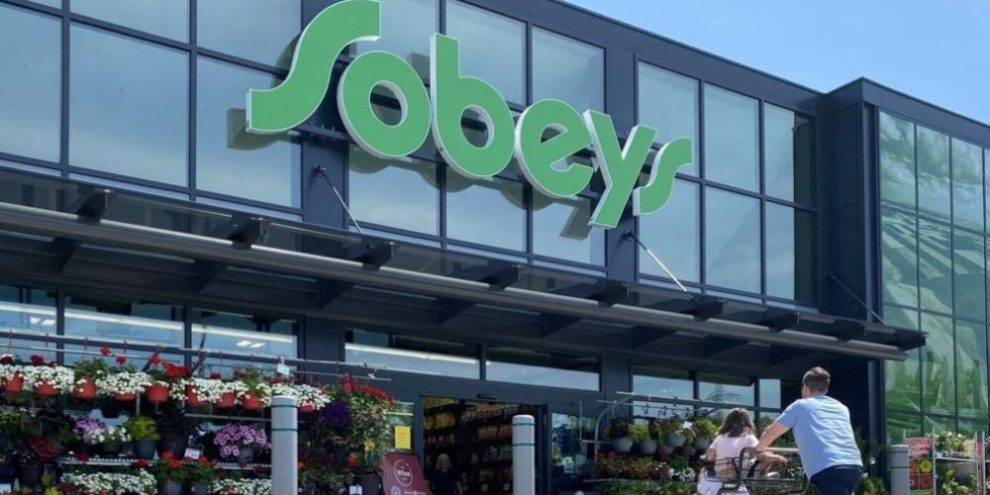
Sobeys parent company Empire Co. Ltd. has officially signed on as the first retailer member of Canada's new grocery code of conduct, as work continues to develop governance rules for members ahead of a full implementation by Jan. 1.
The Office of the Grocery Sector Code of Conduct said Wednesday that dairy product-maker Lactalis Canada has also signed on as the first supplier member of the code.
The grocery code is intended to promote fair dealings between grocers and their suppliers including the application of penalties and fees. It is being developed in an effort to bring more transparency, fairness and predictability to the industry.
Barrie's News Delivered To Your Inbox
By submitting this form, you are consenting to receive marketing emails from: Central Ontario Broadcasting, 431 Huronia Rd, Barrie, Ontario, CA, https://www.cobroadcasting.com. You can revoke your consent to receive emails at any time by using the SafeUnsubscribe® link, found at the bottom of every email. Emails are serviced by Constant Contact
All of Canada's major grocers — Empire, Loblaw, Metro, Walmart Canada and Costco — had confirmed their support for the voluntary code as of July 2024, however this week marks the opening for formal registrations.
The office's president and adjudicator Karen Proud said formal recruitment efforts are expected to begin this fall after the completion of the code's final governance documents, such as its bylaws, operating rules and a formal dispute resolution mechanism.
It's a soft launch of sorts for the code, which as of this week has a new website and member portal which offer access to guidance materials, updates and a secure space for members to engage with the grocery code office.
Membership dues will not be collected until the beginning of next year, meaning companies can officially register in 2025 without incurring any cost for the remainder of the year.
"With today's launch, people can sign up to the office, become members, become parties to the code, and they will be able to submit and report informal issues that the office will start to look at," Proud said in an interview.
But she added that there "are still a couple of outstanding things that need to be completed before we can fully implement the code."
The work includes bylaws and operating rules setting out how the code's office will function. Those remain in draft form and are expected to be finalized by the end of the summer.
The office is also developing its dispute resolution mechanism, which will govern how complaints are addressed by the office, including consequences for violations of the code.
"That is the largest governance piece that needs to be completed and we are well on our way, with a working group comprised of industry representation," said Proud, adding she expects the document to be complete by September.
"It's only once that is finalized and once we've had some time to educate people on it and people have time to integrate it into their businesses, will we then be able to launch that formal dispute resolution."
Empire CEO Michael Medline was the first major grocery executive to call for a grocery code of conduct to level the playing field for Canadian grocers and suppliers, drawing on similar codes in the U.K. and Australia.
He has cautioned the code won't be a "silver bullet" for solving problems in the industry, but that it could lead to lower prices, shorter supply chains and more choice for Canadians.
The industry committee tasked with creating the code was established in response to contentious fees being charged to suppliers by large grocery retailers, an issue that came to a head in 2020 when Walmart Canada and Loblaw each introduced new supplier fees to help pay for infrastructure investments.
There was hesitation from some of the grocers about signing on, but the federal government warned it could make the code mandatory if all the major players didn't get on board.
Proud said she hopes the code's implementation will create "more trust between players to really strengthen the Canadian grocery business." While its outcomes could include helping smaller producers find more opportunities to get their products to market, she said shoppers shouldn't be expecting the code to address issues that are out of its control.
"I think there's been a lot of misinformation that the code is somehow going to address food inflation. It's just not," she said.
"There's so many other factors that contribute to the price of food. This code was never meant to deal with that ... The code is really to create a better, more collaborative, more trust-based industry in Canada, which is only going to help the smaller, independent grocers and suppliers be able to do business within this country."
This report by The Canadian Press was first published July 2, 2025.
Companies in this story: (TSX:EMP.A)





